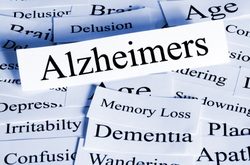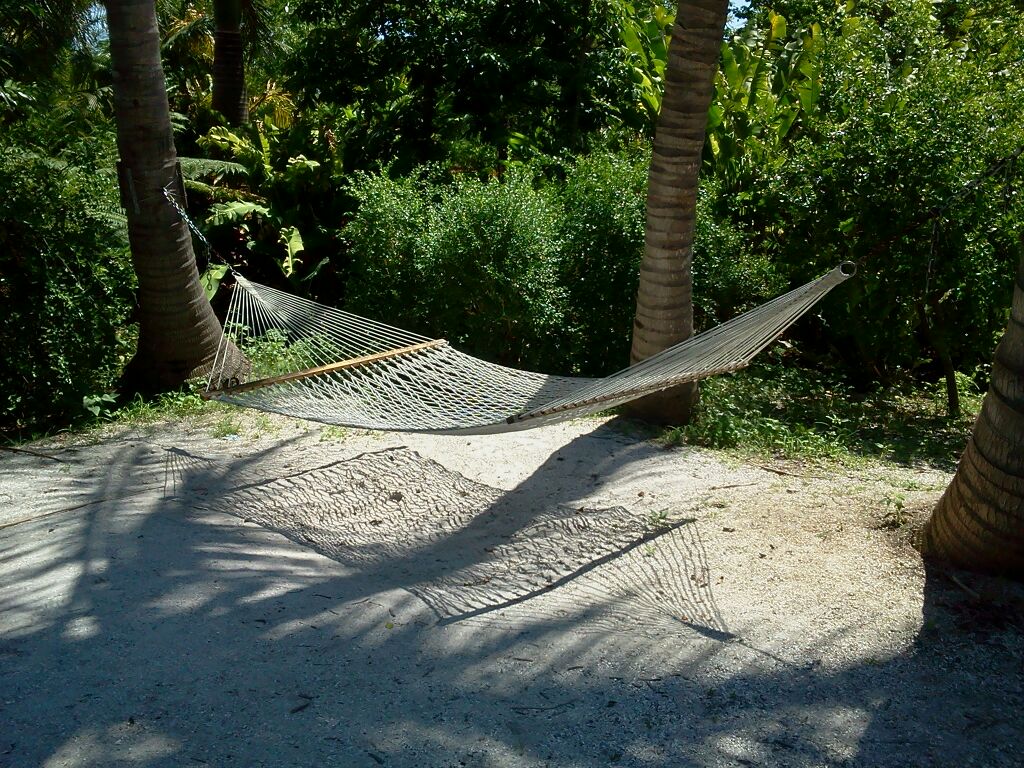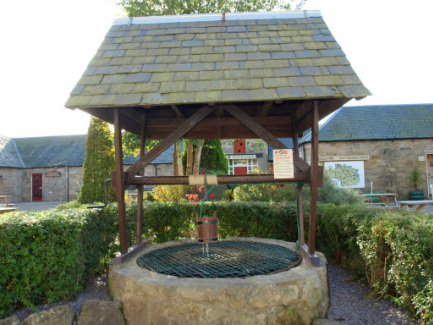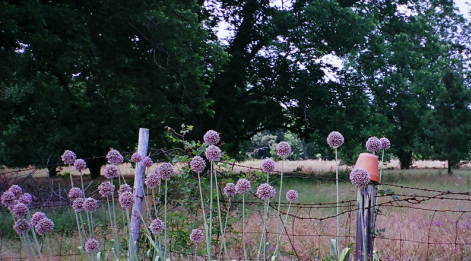"There are four kinds of people in this world: those who have been caregivers, those who currently are caregivers, those who will be caregivers, and those who will need caregivers."  No matter which of the above four categories outlined by former First Lady Rosalynn Carter you may fall into, there is little doubt that your life has been affected by Alzheimer's -- either through a family member, friend or spouse. I won't bombard you with statistics, since they are all over the media airwaves, thankfully so! But I want to point out the there are over 65 million family caregivers in the US alone, mostly women, struggling along as the unsung heroes or sheroes, as the case may be, who deal with this disease or others, daily. I want to let you know that they need your help. Yes, I'm talking to YOU! This is not a disease which will allow cheering from the sidelines. You're going to have to get down and dirty, and maybe take a few hard knocks for the team and almost definitely get out of your comfort zone. If you know anyone who is dealing with Alzheimer's, for heaven's sake, help them out! Here are some things you can do: 1. Give them a huge hug and a warm, sincere "thank you" for their love and care. Let them know you acknowledge how tough it can be. It will make both of you feel better. 2. Offer practical help: a couple hours of respite care so they can go to a movie or shopping or take a nap. Do their laundry at your house and deliver it clean and folded. Take their children out for an afternoon of fun at the park or zoo to give those "sandwiched" between elder care and child care a break on one end of the caregiving spectrum. Find information about resources available in your local area for support, respite, help and give them to the caregiver with encouragement to help them follow through. 3. Take a walk to end Alzheimer's on Saturday, October 19, when the Alzheimer's Association is sponsoring a national fund-raising event. Click on the Alzheimer's Association link above to sign up. Get your company involved in matching donations raised (if you work for a company so inclined). 4. Help start a Memory Cafe in your community. Here's a "Toolkit" guide for this very worthwhile project and more information about how successful they are and how easy it is to bring better quality of life to those with dementia. There are currently about 80 Memory Cafes around the US, mostly grassroots local efforts, and so very helpful to caregivers and those with dementia. The concept is really taking off in the UK, with excellent support from the government. Here, unfortunately, we have to do it ourselves. 5. Be an advocate for creating dementia-friendly communities, so that caregivers can take their loved ones out to a restaurant, shop, church, or other public event without feeling the terrible stigma that tends to pervade uninformed environments. It isn't that people aren't willing to be dementia-friendly. They simply don't know how. Educate yourself, then educate others. See the excellent resource "Aging, Dementia, and the Faith Community: Continuing the Journey of Friendship" by John T. McFadden, M.Div., Chaplain at Appleton Health Care Center in Appleton, WI) 6. Practice the Mosquito Principle: "If you think you're too small to be effective, you have never been in bed with a mosquito." So, go ahead and be annoying to the decision-makers who can help to fund the end of Alzheimer's. Bother everyone you can think of and be very persistent in your efforts to help caregivers at the end of their rope, dealing with Alzheimer's. You CAN make a difference. Practice being mosquito-like. It can actually be fun, once you get the buzz, er, whine of it! 7. Introduce folks to this website which has a depth of resources, links, tips, advice and sanity-saving humor to help caregivers maintain their own well-being. There are helpful ideas about using music, meditation, aromatherapy, self-care, inspiring books, personalized playlists on iPods with www.musicandmemory.org, and so much more at www.caregiverwellness.biz. 8. Lastly, practice outrageous acts of kindness and caring for the people you love, and maybe for strangers, too. Use the Pay it Forward concept. Reach out and offer your support in big and small ways. Be vocal, be an activist, be a pain in the patooti, but be involved. If we are not, who will be?  Are you a family caregiver at the end of your proverbial rope? If the answer is yes, hang on and read on! You have options: 1. You can tie a knot in the end of the rope and hang on for dear life in hopes that some miraculous rescue will occur before your strength gives out and you fall into the abyss of overwhelm, frustration and caregiver burnout below. (I don’t recommend this option, since, in my experience miraculous rescuers are few and I usually go for a more proactive option, anyway. Plus, if you fall and hit the rocks below, it really hurts!) 2. You can tie a noose with the rope and figuratively hang yourself, in essence, giving up your own precious life by giving in to negativity, depression, and despair. By giving up, you shift all responsibility for caregiving to someone else and abdicate your role. (I certainly don’t recommend this option, since I believe whole-heartedly in Life with a capital “L” and that love has amazing powers to heal and keep us whole! But you would be surprised how many people choose this) 3. You can swing on the rope trying to clear the canyon of caregiver destruction beneath you and get on solid ground. (This is a marginally better choice than #1 or #2, but still doesn’t work for me) 4. You can use the rope to make a hammock of support beneath you – a place you can relax, rest and renew your strength, inner resources, and commitment to the caregiving journey. Eventually, your rope hammock can become a rope bridge allowing you to safely navigate across the caregiver chasm and keep your life and sanity in the process. (Now, I admit I am biased, but this is the one I would choose.) This post is an excerpt from my soon-to-be-published ebook, which provides practical tips and gentle self-care and self-nurturing techniques to make life less of a struggle and more of a loving learning experience. If you are tired of struggling and dangling your way through the uncertainties of caregiving, please sign up to receive a release notice when Sanity Savers: For Caregivers at the End of Their Rope is published. Find support for a more balanced, healthy, life-enhancing approach to giving care – a hopeful, positive way that includes you along with your care-receiver. 10/3/2012 Memory Cafes & Overnight Respite Care I've just been reading about these two concepts for Alzheimer's care, which frankly could completely change the face of caregiving for families dealing with this difficult disease. Given that one of the biggest problems for family caregivers caring for their loved one at home is isolation/depression, the chance to be with a group of other caregivers (and care receivers) in an enjoyable social setting provided by the Memory Cafe is a perfect boost to mental and emotional health. Even respite care, though very necessary, doesn't provide the same kind of supportive, warm, interactive environment in which to simply exchange conversation, ideas and enjoy the company of others who completely understand the challenges of the Alzheimer's journey. It benefits both the caregiver and receiver to have this type of socially stimulating environment. It is not a "support group" for caregivers, since the aim is not to provide education, problem solving, or information, but rather just to have fun! The concept for Memory Cafes is really beginning to catch on in England, and is now being actively advocated here in the US as well. The focus is on positive reinforcement among peers, laughter, food and simple pleasure in the company of others who are going through the same journey -- without any stigma attached. After all, other caregivers will be much more understanding of behaviors that might cause embarassment in a public setting. According to John T. McFadden, in an article written for the Alzheimer's Reading Room: A Reminder: Why We Need Memory Cafes, "Memory Cafes are, first and foremost, a setting in which persons with memory loss can share fun and laughter with their care partners and friends in a setting free from awkwardness and stigma." Speaking as a former caregiver, I think this is a truly wonderful idea, one whose time has come! Mr. McFadden has written a newly released book to champion the cause, titled, Aging Together: Dementia, Friendship, and Flourishing Communities. He and his wife are planning to visit existing Memory Cafes in England in order to refine a model for use in America. This is a concept we should most definitely support. It just makes sense to tap this important resource we have in each other -- our sense of friendship and community, which can be an invaluable help to those on the front lines of Alzheimer's. The second concept, which is new to me, but has been practiced at the Hebrew Home at Riverdale in New York for the past 10 years, is overnight care for dementia patients to allow caregivers a good night's rest at home. This innovative concept makes 24-hour use of the nursing home facility, to provide day care from 8:30am to 4 pm and overnight care from 7 pm to 7 am. The program creates a sort of party atmosphere for the participants, with music, marimbas, and dancing as well as singalongs, crafts, and therapy sessions that last till dawn. There is also provision made for those whose Alzheimer's may be more advanced, which includes soothing sounds, aromatherapy, massage and touch therapy. If you would like to read more about this, here's a link to an Associated Press article appearing in the Wall Street Journal, updated October 1, 2012, titled: Overnight dementia 'camp' allows caregivers rest. Because so many Alzheimer's patients are very wakeful and sometimes agitated at night (called Sundowning), it creates major problems for families when their sleep is disrupted night after night by this behavior. Again, from a personal experience perspective, this was the single most insurmountable problem for my family -- sleep deprivation for months on end. It errodes a person's health, sanity, and makes the demands of caregiving impossible to continue. It is a major complaint of Alzheimer's caregivers and one of the main reasons for institutionalizing their loved one. It doesn't have to be if there are more programs for overnight respite care developed around the country. It really makes perfect sense to use facilities around the clock (with different shifts of staff, obviously), so that families can rest and resume their care duties after a good night's sleep. I would love to hear your feedback on these two concepts and any personal stories you'd like to share about how your family is affected by these challenges of caregiving. Feel free to comment below. 8/31/2012 Letting the Well Fill UpThere's a lovely Southern expression, "Letting the well fill up", which means that you have to stop drawing water from the well in order to allow it time to replenish. I love this image! It surely applies to caregivers as a perfect metaphor for allowing ourselves the time to renew, reinvigorate, reach out for inspiration -- to have a respite from our cares and caregiving so that we can let our resources of love, energy, enthusiasm, and compassion be recharged from the inside out. To pause and "let the well fill up" with grace and guidance. Whatever your spiritual tradition, take the time you need to connect to your Source in prayer and meditation with heartfelt trust that the well will be filled to overflowing for you. And open your heart to receive the blessings!
Max Highstein has created a soothing, relaxing guided meditation called The Healing Well. To hear a sample of this and his other guided meditations with beautiful music, please visit www.guidedimagerydownloads.com 5/23/2012 Utopia for CaregiversIf you could design the perfect retreat for stressed out caregivers -- a place which was nurturing, and inherently a place of healing -- providing both a quiet respite and tools for coping with burnout and stress -- what would it look like? What features would be most important to you? Would it be close to the ocean or water body of some kind? In the mountains? In a peaceful, rural setting? With acres of forest to walk and lose yourself in natural beauty?
I am not just asking random questions here, but rather shaping an idea, a concept, for just such a retreat. I envision a place where you can completely disconnect from all demands on you -- where there is silence, if that is what you need - without the endless chatter and background noise of TV and radio, but instead, there is soothing, peaceful, de-stressing music available. There would be plenty of natural settings, lots of open space, a chance to be with others or be solitary according to your needs and wishes. There would be time for stargazing, wool-gathering, sitting fireside or poolside according to season. There would be tailored programs to teach about various proven stress reduction techniques such as yoga, Tai Chi, massage, meditation & relaxation. There would be information and practical tips as to how your diet can support your health (and by extension, that of your loved one for whom you are caring). There would be gardens growing the plants for these healthy foods (envision blueberries, pomegranates, walnuts, tumeric, lavender, sunflowers, and other antioxidant fruits, seeds, herbs and spices.) You could participate in the gardening if you feel drawn to immerse yourself in that special timeless therapy of nurturing growing plants and getting your hands in the soil. There would be a counselor on hand -- skilled in helping people reduce stress and find empowerment and clarity. Does this place sound like a perfect Paradise to you? Me, too! I am currently designing this retreat for Caregivers seeking a chance to renew themselves, learn specific helpful stress relief techniques, exercises, and develop the skills needed to nourish themselves, body, mind & spirit -- to support optimum health and inner peace as they accomplish their caregiving in the most joyful way possible. I would love your input and ideas. It is my desire to make this accessible, not a five-star resort, but more a comforting, cozy, peaceful retreat, available to those who most need it. Please leave your feedback and share your own vision for such a place that it can inform and inspire. This place is for you, the caregiver, and with the right sense of purpose and filling the need, it will become reality. Soon. It's actually there already, just awaiting the foundations under the dream. |
About Karen
Karen is a compassionate, enthusiastic student of life, who cared for her mother for 17 years. She brings her insights, compassion, experience and desire to share knowledge and healing to this ongoing conversation with others on the caregiving path. If you are caring for a parent, spouse, friend or other loved one this site offers sanity-saving tips, open-hearted self-care ideas, and an open forum for discussion, connection and sharing resources for the journey. Archives
October 2021
CategoriesAll Acceptance Aging Together Alan Cohen Alive Inside Movie Alzheimer's Alzheimer's Prevention A Mind Of Your Own Anxiety Aromatherapy Audio Therapy For PTSD Austin Air Hepa Filter Autism Back Care Video Beginner's Mind Being Present Blessing For Caregivers Books Brain Insulin Butterfly Story Calm Calm.com App Care For Veterans Caregiver Advocate Caregiver Coalition Caregiver Comfort Kit Caregiver Guilt Caregiver Retreat Caregiver's Serenity Prayer Caregiver Stress Caregiver Support Care Giving Caregiving Vulnerability Care In Hospital Caterpillar Into Butterflies Chamomile Tea Cindy Laverty Comedian Computers & Exercise Crisis Dan Cohen Deepak Chopra Delirium Depression Diabetes Disaster Preparedness Distractions Dr. Dharma Singh Khalsa Dr. Oliver Sacks Eden Alternative Eldershire Elizabeth Dole Foundation Emergency Planning Emergency Preparation Emerson End Of Caregiving Enough Already Escapism Essential Oils Food Safety Forgiveness Funny Stories Gaiam.com Gail Sheehy Gift Of Alzheimer Gift Of Healing Presence GMO Food Green House Project Gregory Fricchione Md Grief Guilt Happy Light Healing Holding Hands Home As Sanctuary Hope Hospital Caregiving Hospital Stay Humor Inspirational Reading Ipods For Nursing Homes Isolation Jacksonville James E. Miller John Denver Johns Hopkins Study John T. McFadden Jon Kabat-Zinn Kelly Brogan Kirtan Kriya Meditation Lao Tzu Laugh Laughter Lavender Loneliness Loss Of Purpose Love Love In The Nursing Home Maya Angelou Mayo Clinic Mayo Clinic Alzheimer's Blog MD Meditation Meditation Garden Melatonin Memory Memory Cafe Military Caregiver Mindfulness Meditation Mr. Bean Music Music & Alzheimer Music And Memory Neurological Research Noise Pollution Operation Family Caregiver Opportunity Overnight Respite Care Pandemic Passages In Caregiving Patience Paul Coelho Peace Post-traumatic Stress Disorder Power Of Love Prayer PTSD Quality Of Sleep Radical Contentment Relaxation Releasing Problems Renewal Research Respite Rewind Rodney Yee Rosalynn Carter Rosalynn Carter Institute For Caregiving Rowan Atkinson Sanctuary Sanity Self Care Serenity Silence Sleep Slowing Time Solutions Soothing Music Stress Stress Relief Sun Sunshine Support For Caregivers Tai Chi Thanksgiving The Care Company The Kiss Time Traumatic Brain Injury Travel With Alzheimer's Person Treat VA Caregivers Valentine's Day Verilux Veteran Farms Veterans Veteran Suicide Vitamin D Wayne W. Dyer Wellness Wendell Berry White Noise William H. Thomas Worry Yoga Yoga Video |




